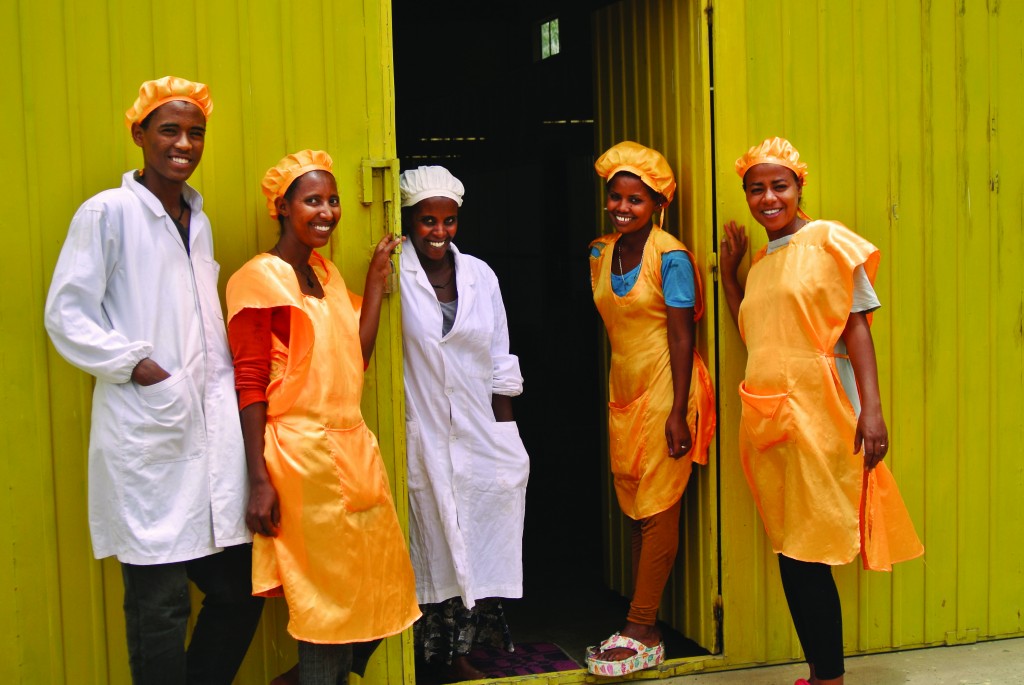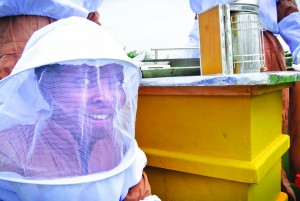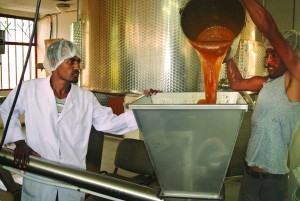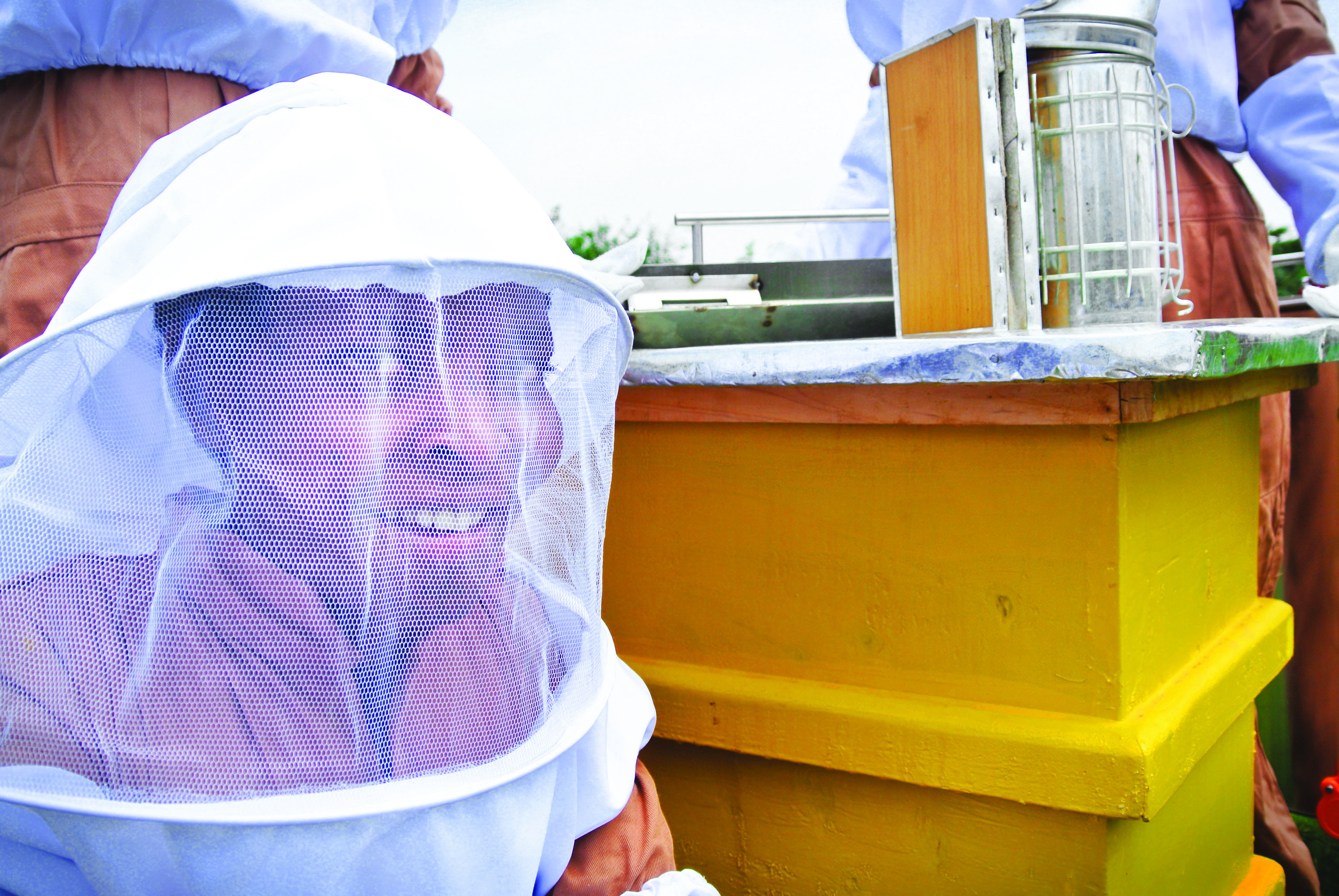Ethiopian farmer Ayelech Bekele, 55, joined the Lelistu Ogda farmer cooperative because she believed she had better chances to improve her quality of life as part of a group. She’s married with six children and a fifth grade education. She and her family have always been farmers.
Ayelech has one hectare of land that has deteriorated significantly over the years due to soil erosion and lack of maintenance. She has seen a decrease in maize and teff yields while her mango and avocado trees are bearing less fruit every year.
 Although the Ethiopian government facilitates fertilizer distribution, Ayelech cannot afford inputs to upgrade her soil’s fertility. In fact, most of the farmers in the farmer cooperative struggle with soil fertility. That’s why Ayelech and 19 other women now embrace beekeeping as an alternative method for increasing their income.
Although the Ethiopian government facilitates fertilizer distribution, Ayelech cannot afford inputs to upgrade her soil’s fertility. In fact, most of the farmers in the farmer cooperative struggle with soil fertility. That’s why Ayelech and 19 other women now embrace beekeeping as an alternative method for increasing their income.
“Since our farm lands are poor quality and we can’t afford fertilizers, beekeeping is an alternative way for me to take care of my family since I can produce more income with this new skill. Our primary cooperative will improve too,” says Ayelech.
 In August 2015, Agribusiness Market Development program provided Ayelech and 19 women in her cooperative with beekeeping equipment and technical training. The activity starter kit gives each member two to three modern hives, beekeeping attire, three kilograms of wax and provides the group with a beeswax molder, honey extractor and queen excluders. Each woman then commits to purchasing two more beehives.
In August 2015, Agribusiness Market Development program provided Ayelech and 19 women in her cooperative with beekeeping equipment and technical training. The activity starter kit gives each member two to three modern hives, beekeeping attire, three kilograms of wax and provides the group with a beeswax molder, honey extractor and queen excluders. Each woman then commits to purchasing two more beehives.
In addition, the program trains the new beekeepers in advanced techniques in honey production. On the first day of training, the women received a handbook and guide to beekeeping. The women participate in a practical session on the second day stamping wax panels and setting up the modern hives.
During the training, the women were excited, and their enthusiasm turned to smiles during the practical training. Most of the women farmers do not have an education beyond the fifth grade.
“Learning the methods of using modern hives will help us achieve more and increase my income. I am excited to produce honey,” explains Farmer Ayelech.
Since 2014, AMDe has provided materials and training for over 320 women beekeepers in the four regions Oromia (40), SNNPR (60), Amhara (120) and Tigray (100).
Some of the women were already keeping bees while others, like Ayalech, are learning the trade for the first time. In total, the 320 women received 760 modern beehives to promote their beekeeping business.
 If done properly, one hive can produce 25kg of honey per harvest. In an average season and with four modern hives, Ayelech can get two harvests and an extra $200 in addition to the sales from her annual maize and teff harvests.
If done properly, one hive can produce 25kg of honey per harvest. In an average season and with four modern hives, Ayelech can get two harvests and an extra $200 in addition to the sales from her annual maize and teff harvests.
“In recent years, beeswax has become scarce in Oromia. The women can capitalize on this and with their excess honey they can make tej or sell it for table honey,” explains Abiy Seifu, regional beekeeping and livestock expert.
Ayelech expects to have her hives buzzing soon and make her first harvest in early 2016.

